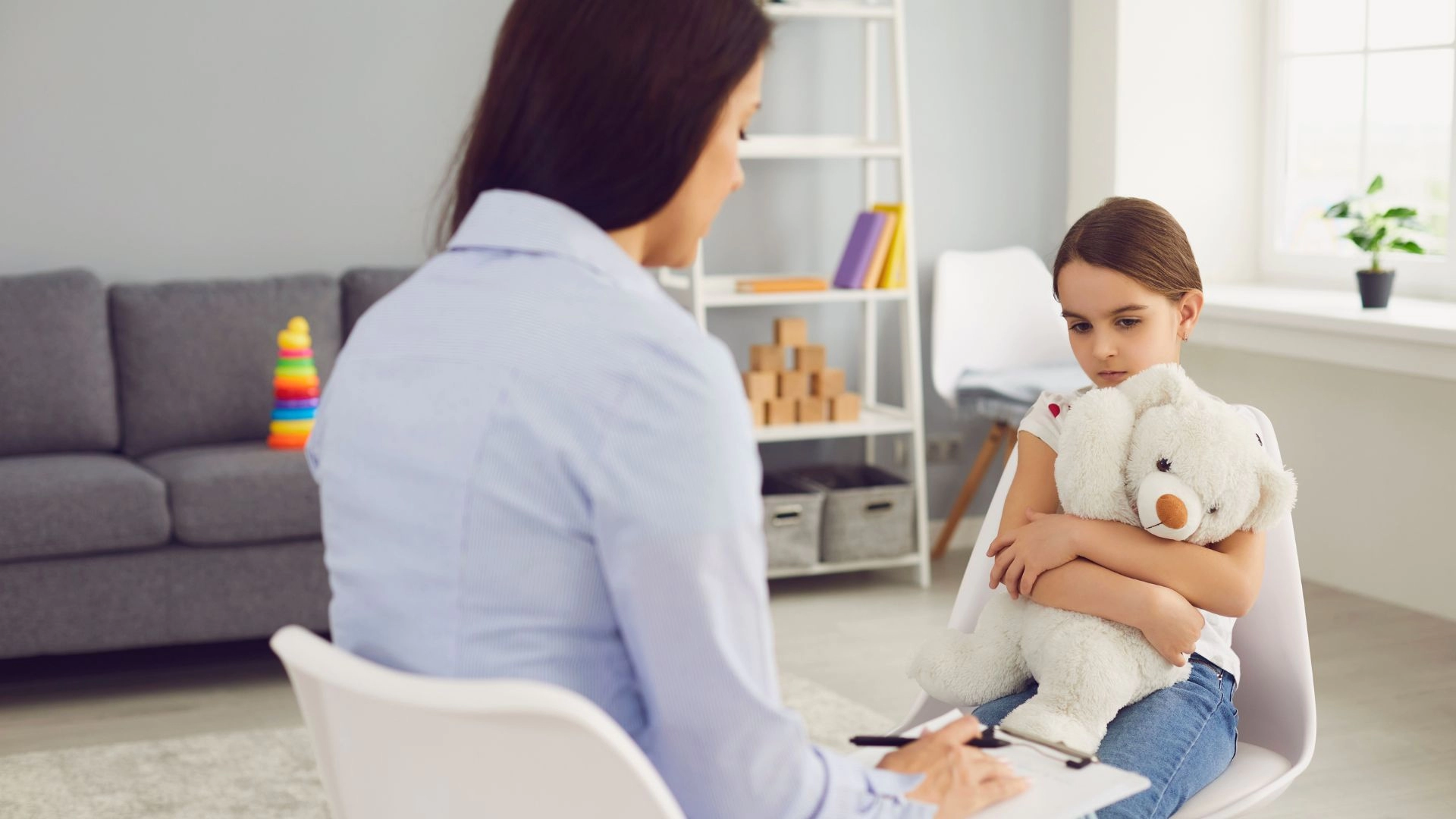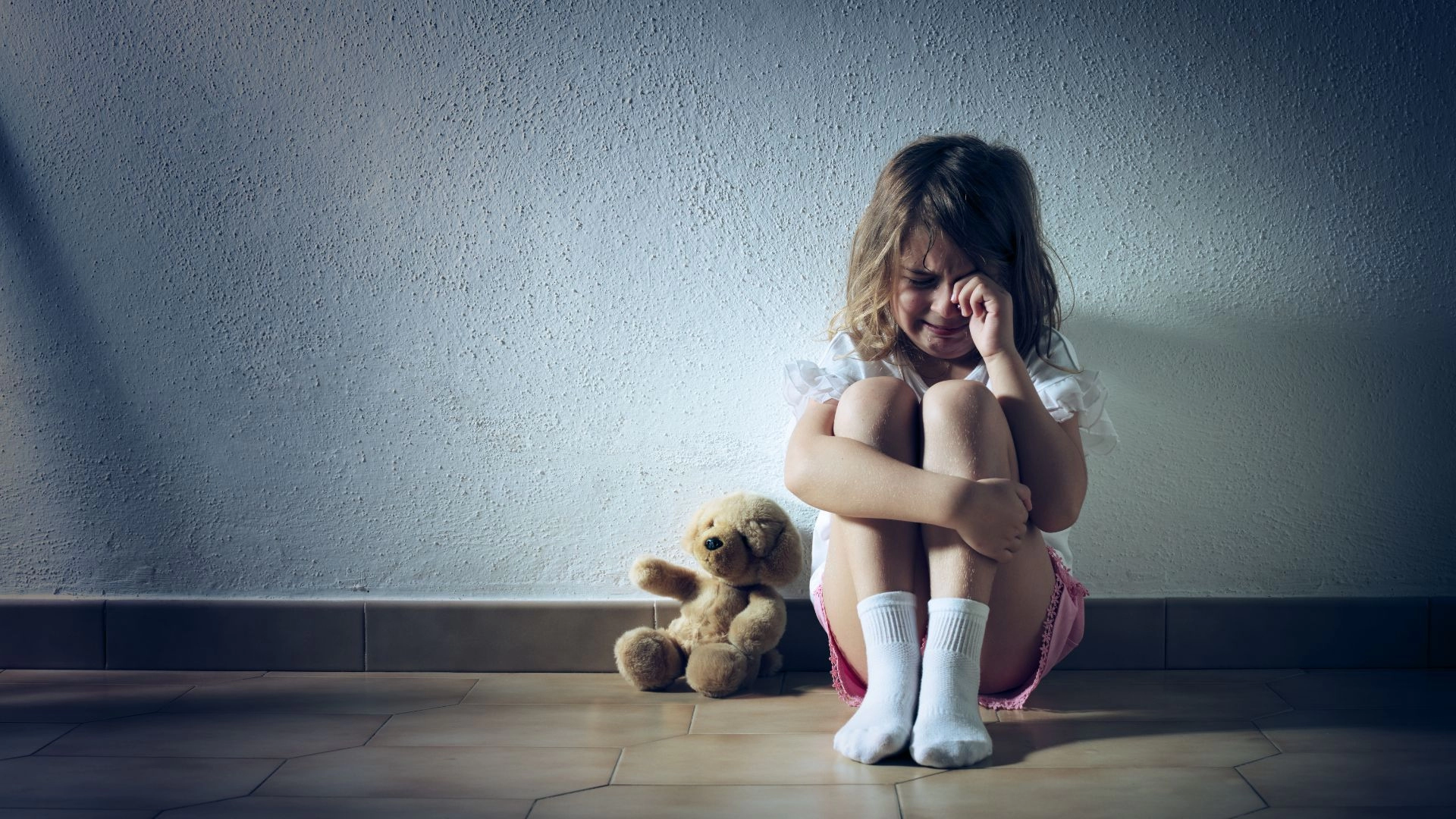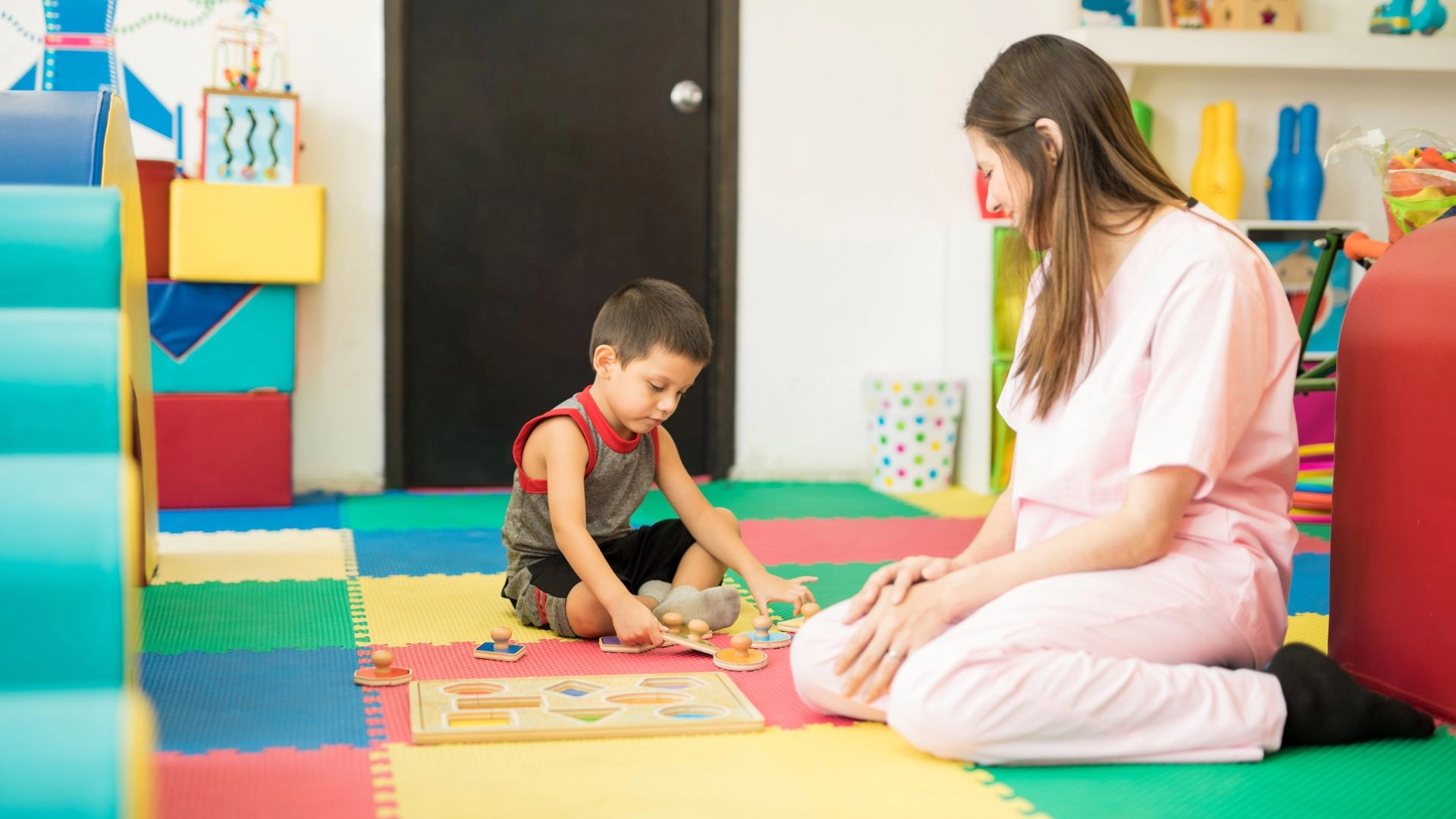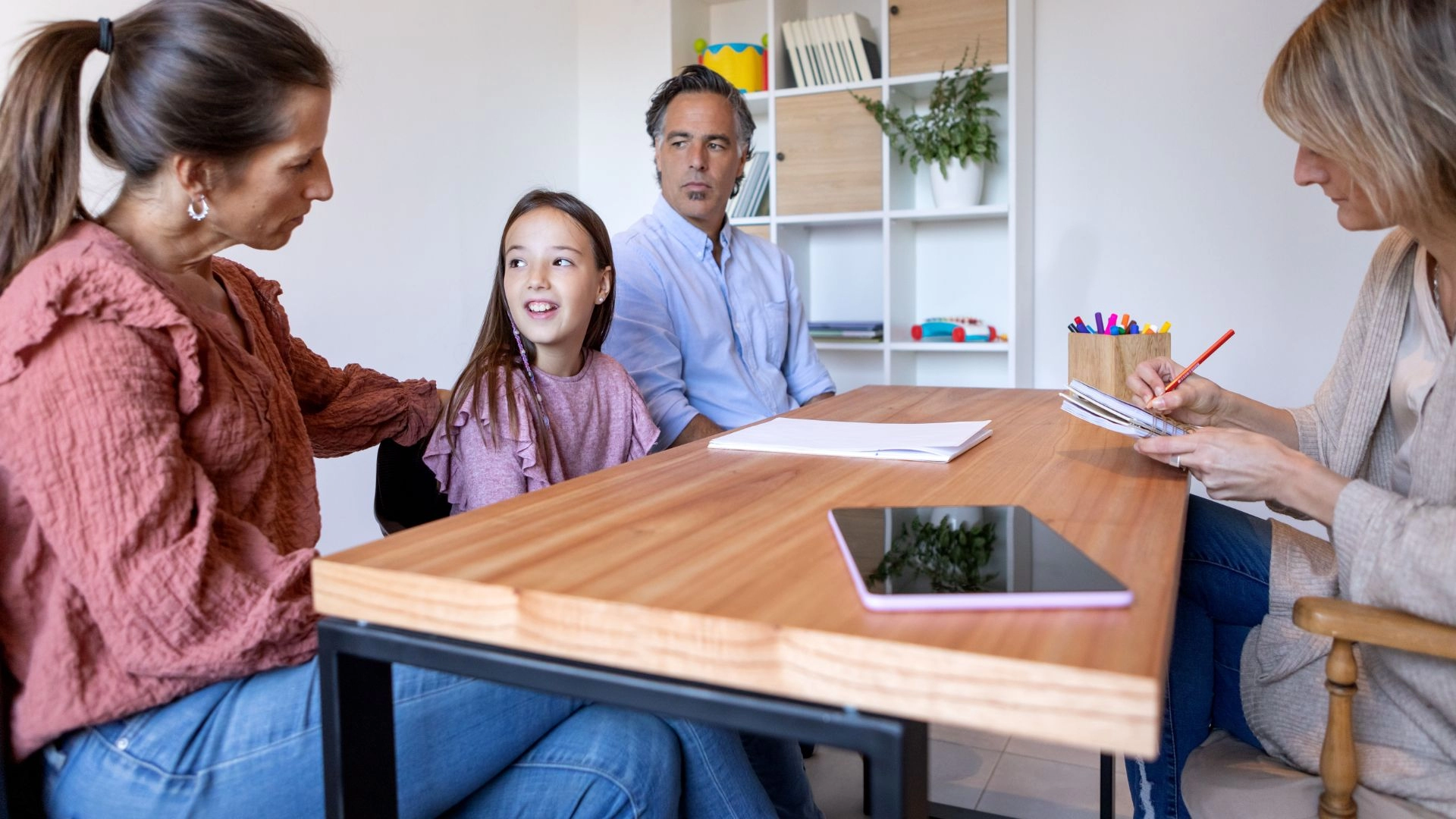We recognize that seeking Child Counselling Therapy for abuse in Mississauga is an essential step towards healing. It’s imperative to create a safe space where all family members can express their feelings and work through trauma together. By using approaches like Cognitive Behavioral Therapy and Play Therapy, we can help rebuild trust and resilience within families. Engaging in family therapy not only strengthens communication but also fosters shared understanding and growth. We’re here to guide you through this journey, offering support and insights that pave the way for recovery and stability. There’s so much more to explore about this significant process.

About Child Counselling Therapy
Child counselling therapy plays an essential role in helping young ones navigate the emotional aftermath of abuse, allowing them to express their feelings in a safe and supportive environment. It is understood that children often struggle to articulate their emotions, especially when faced with trauma. A skilled child therapist can provide invaluable emotional support for children, guiding them through therapy for childhood trauma in a compassionate manner.
Through child mental health services, we can address not only the trauma but also any child behavior disorders that may arise as a result. Trauma-informed therapy is vital, as it recognizes the impact of trauma on a child’s overall well-being. By fostering a trusting relationship, the child therapist creates a space where healing can begin.
Child and family counseling can further enhance this process, allowing families to understand and support their child’s emotional healing for children. In therapy for kids, we witness the transformative power of expressing feelings and learning coping strategies. Ultimately, child counselling therapy equips children with tools to navigate their emotions, fostering resilience and promoting healthier relationships as they grow. Together, we initiate a journey toward healing and empowerment.
Recognizing and Understanding Child Abuse
Recognizing and understanding child abuse requires us to be vigilant and compassionate, as the signs may often be subtle yet profoundly impactful on a child’s development and emotional well-being. We must remember that child abuse can manifest in various forms—physical abuse, emotional abuse, psychological abuse, and neglect. Each type leaves lasting scars that can hinder a child’s emotional resilience.
When we think about recognizing abuse, it’s essential to look for changes in behavior, such as withdrawal, aggression, or sudden shifts in academic performance. These signs often indicate deeper trauma that needs our attention. Neglect, too, can be insidious; a lack of basic needs or emotional support can profoundly affect a child’s sense of security.
In our commitment to supporting affected children, we acknowledge that the healing process is complex. Therapy for child abuse can play an important role in helping them navigate their experiences and rebuild their sense of self. By fostering open conversations and creating safe environments, we empower children to share their stories, ultimately guiding them toward recovery and emotional strength. Together, we can make a difference in recognizing and addressing child abuse effectively.

The Impact of Child Therapy on Abuse Recovery
Understanding the profound impact of therapy on a child’s recovery journey allows us to see how healing can unfold in a nurturing environment. Child therapy provides a safe space for children to express their emotions, helping them navigate the scars left by an abusive relationship. Through trauma therapy for children, we can facilitate emotional healing and foster resilience, which is essential for their growth.
These recovery programs often incorporate crisis intervention techniques, addressing immediate needs while laying the foundation for long-term mental health support. By focusing on therapy for childhood anxiety, we empower children to face their fears, gradually rebuilding their self-esteem.
As we engage in this supportive process, we also reinforce child protection, ensuring that children feel safe as they open up about their experiences. Together, we can help them understand that their feelings are valid and that recovery is possible. Ultimately, child therapy not only aids in overcoming past trauma but also equips children with the tools they need to thrive in the future. In this way, we can witness the transformative power of therapy in the lives of those affected by abuse.
Utilizing Cognitive Behavioral Therapy (CBT) with Children
Building on the healing journey that therapy provides, utilizing Cognitive Behavioral Therapy (CBT) with children can be a powerful approach to help them reshape their thoughts and behaviors in response to past abuse. CBT focuses on identifying negative thought patterns and replacing them with healthier, more constructive ones. This method not only aids in emotional regulation in children but also enhances their overall mental wellness.
In our child counseling sessions, we can address issues like anxiety, which is common in kids who’ve experienced trauma. Through targeted child anxiety treatment, we equip our young clients with coping strategies, allowing them to manage their feelings more effectively. For troubled youth, therapy for kids with anxiety offers a structured environment to explore their emotions and challenges.
Moreover, CBT is beneficial for child behavior modification, enabling children to develop healthier responses to stressors. By incorporating grief counseling for children into our sessions, we can support them in processing loss and trauma. Emphasizing trauma-informed care guarantees that we’re sensitive to each child’s unique experiences, creating a safe space for healing and growth. Together, we can foster resilience and empower children on their path to recovery.
Leveraging Play Therapy for Emotional Recovery
Through the gentle lens of play therapy, we can create a safe and nurturing environment where children can express their emotions and begin to heal from past traumas. This approach is essential for emotional development, especially for those who’ve experienced abuse. By incorporating various child therapy techniques, we foster an atmosphere that encourages kids to explore their feelings through therapeutic play.
For special needs children, play therapy becomes an even more important resource, allowing us to tailor our methods to meet their unique needs. It’s a powerful form of child resilience therapy, helping them build coping skills that will serve them throughout their lives. In our sessions, we often utilize behavioral therapy for kids, guiding them in recognizing and managing their emotions effectively.
Parent-child therapy also plays a significant role in this process. By involving parents, we strengthen the family unit, promoting understanding and open communication. Through child counseling services, we guarantee that every child has access to the support they need for trauma recovery. Together, we can nurture their growth, helping them rediscover joy and stability in their lives.

Art Therapy as a Tool for Emotional Expression
Art therapy often provides a powerful outlet for emotional expression, allowing individuals to communicate feelings that words alone can’t capture. In our journey towards healing, we can see how art therapy for kids serves as an essential tool for enhancing the emotional well-being of children. Through creative mediums, children can explore their emotions, particularly when dealing with anxiety in children stemming from traumatic experiences.
With child psychotherapy and therapeutic interventions for children, we can create a safe space for expression. Child therapy activities, such as drawing or painting, enable kids to convey their thoughts and feelings, fostering a deeper understanding of their emotional landscapes. This approach resonates with play-based therapy, emphasizing a child-centered therapy model that respects each child’s unique perspective.
As we engage in these therapeutic processes, we can observe significant improvements in child behavioral therapy outcomes. By empowering children to express themselves through art, we’re not just facilitating their healing journey; we’re also nurturing their resilience and emotional development. Together, we can support these young individuals as they navigate their feelings, promoting healing and growth through the transformative power of art therapy.
The Benefits of Parent-Child Therapy in Abuse Recovery
Recognizing the significance of emotional expression, we can see how parent-child therapy plays an essential role in helping families heal from abuse, fostering stronger connections and promoting understanding between parents and their children. This form of family counseling provides a safe space for both parties to express their feelings about trauma, allowing them to address trust issues that may have developed.
In the context of abuse recovery, parent-child therapy empowers families to rebuild their relationships and develop effective coping strategies. By working together, parents and children can create a supportive network that nurtures mental health and resilience. This collaborative process not only strengthens bonds but also enhances communication skills, which are fundamental for long-term healing.
Through relationship counseling, we uncover the underlying emotions that often lead to misunderstandings and conflict. By learning to express their feelings openly, families can replace anger and fear with empathy and understanding. Ultimately, parent-child therapy serves as a beacon of hope, guiding families toward a brighter future filled with trust, love, and healing. Together, we can embrace this journey and emerge stronger, united in our commitment to overcoming the past.

Trauma-Informed Approaches to Therapy for Children
When it comes to helping children heal from trauma, adopting a trauma-informed approach in therapy can make a profound difference in their recovery journey. By focusing on child-focused therapy, we can create a safe space where kids feel understood and supported. This approach recognizes the impact of trauma on childhood emotional issues and helps us tailor child therapy programs to meet their unique needs.
In psychological therapy for children, we prioritize understanding each child’s trauma response. This understanding enables us to guide them through their feelings, promoting healing and resilience. We also emphasize the importance of abuse prevention and safety planning, ensuring that children learn ways to protect themselves and feel secure in their environments.
Additionally, by addressing adolescent mental health, we can equip older children with coping strategies that serve them well into their teenage years. Counseling for kids isn’t just about addressing the past; it’s about empowering them to build healthier futures. Together, we can foster healing, encourage emotional expression, and instill hope, helping our children navigate their journeys toward recovery and emotional well-being.
School Counseling: Supporting Children Affected by Abuse
Supporting children affected by abuse in school settings requires a compassionate understanding of their unique experiences and the challenges they face in their educational environment. By engaging in school counseling, we can help these children navigate their trauma while promoting healthy child development. Adolescent counseling plays an essential role in addressing the mental health in kids, offering a safe space for them to express their feelings and fears.
We know that trauma can lead to issues like bullying or withdrawal, making crisis intervention for children vital. Through counseling, we can equip educators and staff with the skills to recognize signs of distress and implement supportive measures. Regular child therapy sessions can greatly benefit students, allowing them to process their experiences and develop coping strategies.
Moreover, family support therapy can strengthen the support system around these children, helping their families understand the impacts of abuse and how to foster resilience. By creating a nurturing school environment, we can empower our students to thrive despite their past. Together, we can make a difference, ensuring that every child feels safe, valued, and supported in their educational journey.
The Advantages of Group Therapy for Young Survivors
Group therapy can often provide young survivors with a safe space to share their experiences and connect with others who truly understand their struggles. In these sessions, we can openly discuss the impact of childhood trauma, including the effects of domestic violence and the challenges posed by abusers. This shared understanding fosters a unique bond that can’t be replicated elsewhere.
Through group therapy for kids, we can engage in meaningful conversations that promote healing and resilience. We learn to articulate our feelings, which is an essential part of child and adolescent counseling. The supportive environment encourages each of us to express our emotions without fear of judgment.
Moreover, these support groups often serve as a platform for advocacy, empowering us to reclaim our narratives and foster a sense of agency. We discover that we’re not alone; others have faced similar challenges, and together, we can navigate the complexities of trauma therapy.
Ultimately, group therapy becomes a crucial part of our healing journey, reminding us that we can grow stronger together, transforming our pain into a source of strength and hope for the future.
Strategies for Emotional Regulation and Coping
Finding effective strategies for emotional regulation and coping can empower us to manage our feelings and reactions, especially as we navigate the aftermath of abuse. We can begin by seeking parenting support that helps us understand how to foster emotional regulation in our children. This can involve implementing stress management techniques for children, like mindfulness exercises or deep-breathing practices, which help reduce anxiety and promote a sense of safety.
For teens, therapy tailored to their specific needs can be beneficial. Cognitive therapy for kids can provide them with tools to process their trauma and grief, enabling them to express their emotions more effectively. It’s important to recognize that behavioral disorders in children may arise as a response to their experiences, and addressing these behaviors can aid in their healing journey.
Additionally, creating a safe environment, whether at home or in a domestic abuse shelter, allows us to encourage open conversations about feelings. By validating each other’s experiences, we can collectively work through the emotional turmoil, finding resilience together. Let’s remember, we’re not alone in this—support is available, and healing is possible.
Family Therapy: Enhancing Support and Healing
As we work through our emotional challenges, engaging in family therapy can greatly enhance our support systems and facilitate healing for everyone involved. This therapeutic approach provides a safe space for us to openly discuss the trauma and abuse we’ve faced, allowing victims and survivors to share their stories and emotions without judgment.
In family therapy, we learn the importance of boundary setting, which helps us to communicate our needs while respecting each other’s feelings. By focusing on healing together, we can rebuild trust and strengthen our relationships. The therapist guides us through this process, ensuring that everyone feels heard and valued.
Additionally, family therapy can connect us to resources like crisis hotlines, offering immediate support when we need it most. This can be essential for our safety and well-being, helping us navigate difficult situations as a united front. As we engage in this journey of healing, we not only support each other but also foster a deeper understanding of our individual experiences. Ultimately, family therapy empowers us to emerge from our past traumas stronger and more resilient.
The Importance of Early Intervention and Preventative Strategies
Early intervention and preventative strategies play an essential role in addressing abuse before it escalates, helping us to create a safer and healthier family dynamic. We understand that trauma can affect not just individuals but entire families, leading to cycles of family violence, substance abuse, and self-harm. By recognizing early signs of distress in our loved ones, we can seek adolescent therapy and supportive therapy for children, offering them the necessary tools to cope.
Implementing early intervention therapy can greatly reduce the risk of depression and other mental health issues. It’s important to create an environment where consent is prioritized, allowing family members to express their feelings without fear of judgment. This openness fosters trust and encourages everyone to engage in healing.
Moreover, understanding the legal protection available can empower families facing these challenges. We can work together to develop strategies that not only address current issues but also prevent future occurrences. By prioritizing these preventative measures, we collectively contribute to a healthier family unit, breaking the cycle of abuse and creating a supportive atmosphere where everyone can thrive.
Crisis Intervention and Developing Safety Plans
Recognizing the importance of early intervention, we must also focus on crisis intervention and the development of safety plans to guarantee that families feel secure and supported during challenging times. When faced with trauma, particularly in situations involving intimate partner violence, it’s vital to address the immediate dangers of manipulation, control, and coercion.
Crisis intervention provides a lifeline, allowing us to connect families with essential social services that can help navigate these difficult moments. By collaboratively developing safety plans, we empower individuals to reclaim their sense of security. These plans may include establishing safe spaces, identifying trusted contacts, and creating exit strategies in case of emergencies.
We understand that verbal abuse and harassment can leave deep scars, making it essential to approach these situations with empathy and sensitivity. Together, we can help families recognize warning signs, articulate their feelings, and take proactive steps towards safety. Through open communication and support, we can foster resilience and healing, ensuring that families not only survive these challenges but thrive beyond them. In doing so, we create a nurturing environment that prioritizes their well-being and peace.
Get in Touch with Our Child Counselling Therapy Center
We’re here to support families by providing access to our Child Counselling Therapy Center, where nurturing guidance is just a call away. We recognize that steering through issues like child depression, trauma, or the aftermath of sexual abuse can feel overwhelming. Our team specializes in child psychiatry and offers tailored therapy for school-aged children, providing a safe space for healing and growth.
At our Camily Counselling Therapy Center, we are committed to using a range of therapeutic approaches to support your child’s development and well-being. Our specialized services include pediatric counseling and child social skills therapy, aimed at fostering resilience and building confidence in children. For families managing ADHD, we offer targeted therapy to address the specific needs of each child, ensuring personalized support.
We also understand the importance of strong family connections, which is why we provide parent-child therapy to enhance communication and deepen understanding between family members. Our early childhood therapy services ensure that even the youngest members of the family receive compassionate and effective care. We are dedicated to guiding you and your family through these challenges, offering support every step of the way. Let’s take the first step toward healing and strengthening your family together.

Frequently Asked Questions
What Qualifications Should I Look for in a Family Therapist?
When we’re searching for a family therapist, we should consider their qualifications carefully. It’s important to look for someone with a relevant degree in psychology or social work, along with specific training in family therapy. We can also check if they have experience handling our unique issues. Certifications and memberships in professional organizations can add credibility too. Ultimately, we want someone who feels like a safe, understanding partner in our healing journey.
How Do I Know if My Child Needs Therapy?
We might notice signs that our child needs therapy when they show persistent sadness, changes in behavior, or struggles with friendships. It’s important to pay attention to how they express their feelings. If they’re having trouble coping with everyday situations or seem withdrawn, it could be beneficial to explore therapy options. Trusting our instincts as parents, we can reach out for support to help our child navigate their emotions and challenges.
What Should I Expect During a Family Counseling Session?
When we attend a family counseling session, we can expect a safe space where everyone’s feelings are acknowledged. The therapist will guide us through discussions, helping us express our thoughts and emotions openly. We’ll likely engage in activities that foster understanding and connection, allowing us to explore our dynamics and challenges together. It’s a collaborative process, and we’ll emerge with insights and tools to improve our relationships and communication.
How Can I Support My Child During Therapy?
Supporting our child during therapy is essential for their healing journey. We can listen actively, reassure them they’re safe, and let them express their feelings without judgment. It’s important to validate their emotions and remind them that it’s okay to seek help. Staying involved in the process, attending sessions if appropriate, and communicating openly with the therapist can also empower our child. Together, we can create a nurturing environment that fosters their growth and resilience.
Are There Costs Associated With Family Counseling for Abuse?
When we think about the costs associated with family counseling, it’s important to recognize that they can vary widely depending on the provider and location. Some therapists might offer sliding scale fees, while others could accept insurance. It’s essential for us to explore all options and prioritize our family’s well-being. We deserve support, and understanding the financial aspects can help us make informed decisions about the counseling services available to us.
